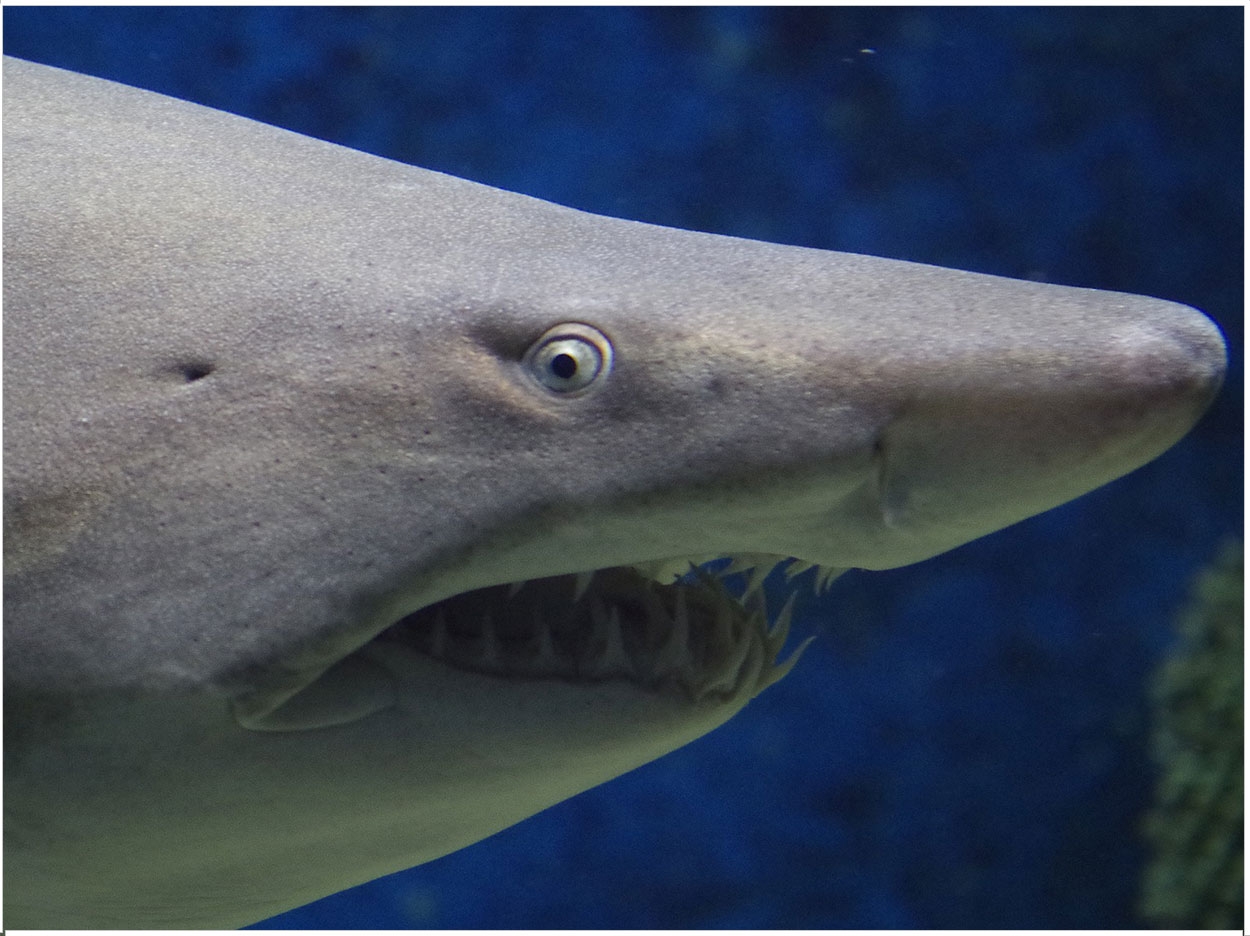
Sharks are infamous for their ability to regrow teeth throughout their lifetime, while human beings only get a couple of sets. Researchers at the University of Sheffield in the United Kingdom, though, have identified the genes that give sharks their regenerative capacity, with an eye on someday giving people the same ability.
“We know that sharks are fearsome predators, and one of the main reasons they are so successful at hunting prey is because of their rows of backward-pointing, razor-sharp teeth that regenerate rapidly throughout their lifetime and so are replaced before decay,” said Dr. Gareth Fraser of the University of Sheffield.
The researchers have identified how a special set of epithelial cells, known as dental lamina, forms in sharks. These cells are responsible for lifelong tooth development and regeneration in sharks, conserved throughout 450 million years of evolution. Human beings have these cells too, but they only form baby and adult teeth before they are lost.
“The Jaws films taught us that it’s not always safe to go into the water, but this study shows that perhaps we need to in order to develop therapies that might help humans with tooth loss,” said Fraser.
By analyzing the teeth of catshark embryos, the researchers characterized the expression of genes during stages of early shark tooth formation. They found that these genes participate in the initial emergence of the teeth and are redeployed for further tooth regeneration.
At the beginning of the sharks’ evolutionary history, the researchers said, their teeth most likely were continuously regenerated and used a core set of genes from members of key developmental signaling pathways that were instrumental in evolving to redeploying the genes to replace teeth when needed.
Shark dentition is formed and patterned via these highly conserved signals, which are used by all toothed vertebrates, the researchers said. Slight genetic alterations, they added, could be the difference between the limited replacement supply of teeth that mammals have and the unlimited dentition that sharks have.
The study, “An Ancient Dental Gene Set Governs Development and Continuous Regeneration of Teeth in Sharks,” was published by Science Direct. It was supported by the Natural Environment Research Council and the Leverhulme Trust.
Related Articles
Enamel Evolved from Fish Scales
Researchers Study Fish to Regenerate Teeth
Stem Cells May Be Used to Grow Teeth












